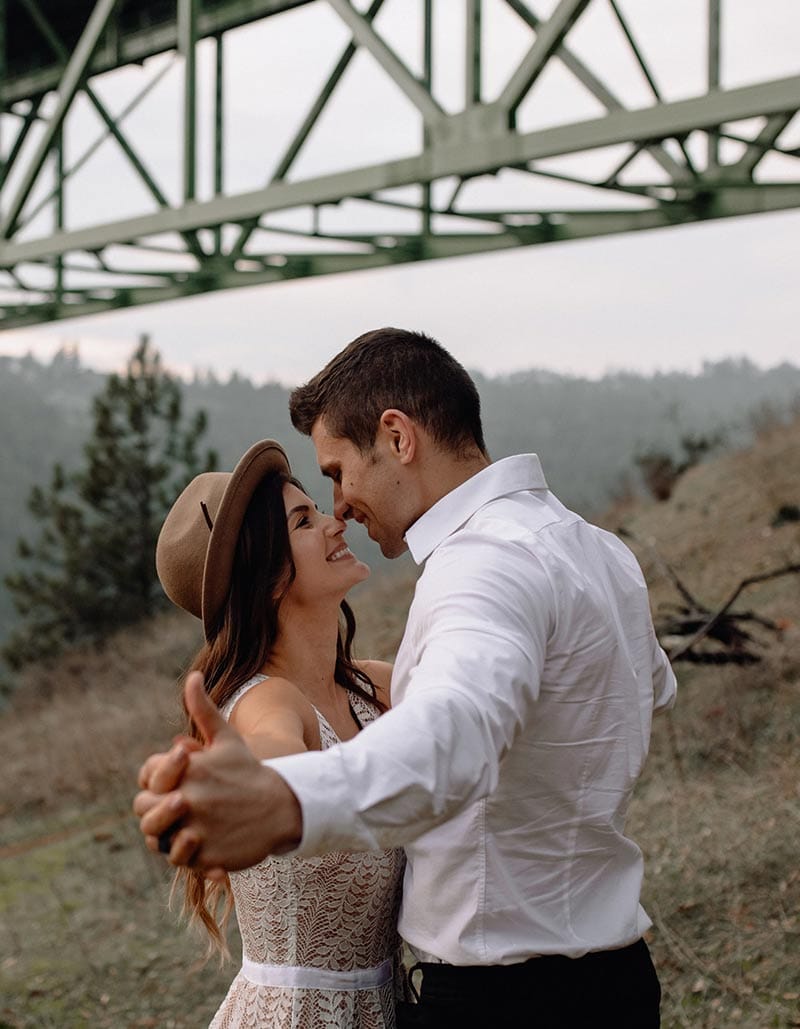Planning a wedding is an exciting yet often overwhelming experience for many brides and grooms. From finding the perfect wedding venue to choosing your dream dress or suit, every detail plays a role in crafting your special day. If you’re preparing to tie the knot, having a clear and well-organised plan can make the difference between a stress-filled engagement and one filled with joy and anticipation. That’s where our 101 wedding planning tips come in, designed to guide you every step of the way.
Whether you’re envisioning an intimate countryside celebration, a grand city-centre wedding, or a romantic beach ceremony, these wedding tips are packed with practical advice and creative ideas. We’ll help you navigate crucial decisions, such as choosing a wedding photographer, staying on top of vendor contracts, and incorporating personal touches that reflect your unique love story.
Our guide is tailored for UK couples, ensuring you’re armed with knowledge of the best wedding planning practices, local customs, and insider advice to make your wedding day truly unforgettable. With a focus on smart budgeting, stress-free organisation, and creative inspiration, our 101 tips for brides and grooms will ensure that your journey to “I do” is as magical as the day. Let’s get started!
pictures by Bonham Prestige www.bonhamprestige.com

101 Wedding Tips for Brides and Grooms
- Set Your Wedding Budget Early – Decide on your total budget and allocate it across key areas like the wedding venue, catering, attire, and photography. This will help you avoid overspending while ensuring your priorities are met.
- Choose the Perfect Wedding Venue – Research venues that align with your theme, guest list size, and location preferences. Popular venues in the UK, such as countryside manors or historic hotels, often book up quickly, so secure your date early.
- Pick a Wedding Date with Care – Consider seasonal factors, weather, and guest availability. Summer weddings are popular in the UK, but winter weddings can offer unique charm and off-peak pricing.
- Hire a Professional Wedding Photographer – Invest in a photographer who specialises in weddings and has a style you love. Review portfolios and ask about experience with your chosen venue.
- Create a Wedding Timeline – Draft a clear schedule for the day, including getting ready, the ceremony, and the reception. Share it with your vendors to keep everyone on track.
- Send Save-the-Date Cards Early – Give your guests plenty of notice, especially if your wedding is in a popular location or during peak season.
- Book Local Vendors for Convenience – Hiring vendors based near your venue can save on travel costs and ensure smoother logistics.
- Include Personal Touches – Add elements that reflect your relationship, such as customised vows, a signature cocktail, or decorations tied to your love story.
- Plan for Unpredictable Weather – In the UK, rain is always a possibility. Have umbrellas or a backup indoor option if you’re planning an outdoor ceremony.
- Choose Sustainable Wedding Ideas – Opt for eco-friendly options like recycled paper invitations, locally sourced flowers, and reusable decorations.
11–20: Wedding Planning Essentials
- Prioritise Your Guest List – Decide early on whether you want a small, intimate wedding or a larger celebration. This will guide many other decisions, including the wedding venue size and catering costs.
- Visit Venues in Person – Pictures are helpful, but nothing beats seeing a venue in person. Pay attention to details like lighting, parking, and access for guests with mobility needs.
- Hire a Wedding Planner – If your budget allows, a professional planner can help with logistics, vendor management, and keeping your stress levels down.
- Choose a Wedding Theme – Decide on a theme or colour scheme early to ensure cohesive decor, invitations, and attire choices.
- Book Key Vendors Early – Popular vendors like photographers, florists, and caterers can get booked months in advance. Secure your favourites as soon as possible.
- Set Up a Wedding Website – Share important details like your RSVP deadline, accommodation suggestions, and the wedding day schedule in one convenient place.
- Understand Marriage Licence Requirements – Check the rules for obtaining your marriage licence in the UK, including any waiting periods or documents needed.
- Create a Pinterest Board – Use Pinterest to gather inspiration for everything from wedding hairstyles to table settings.
- Establish a Contingency Fund – Unexpected expenses often arise during wedding planning. Set aside 10% of your budget for last-minute costs.
- Keep Communication Open – Regularly check in with your partner to ensure you’re aligned on priorities and decisions.
21–30: Choosing Your Wedding Attire
- Start Dress Shopping Early – Bridal gowns often take months to arrive and may require alterations. Begin your search at least 6–8 months in advance.
- Don’t Forget the Groom’s Suit – Tailored suits elevate the groom’s look. Consider renting or buying, depending on the budget.
- Consider Comfortable Footwear – Brides, break in your shoes ahead of time, especially if you’ll be wearing heels all day.
- Dress for the Weather – If your wedding is in winter, consider elegant capes or faux-fur wraps. For summer weddings, lighter fabrics are ideal.
- Coordinate Accessories – Choose jewellery, veils, or ties that complement your wedding theme and attire.
- Involve Your Bridal Party – Take your bridesmaids and groomsmen shopping for their outfits to ensure everyone feels comfortable and stylish.
- Plan a Second Look – If you’re having a long wedding day, consider changing into a second outfit for the evening reception.
- Think About Hair and Makeup Trials – Book trials with your stylist to test your wedding day look and ensure it lasts through the day.
- Consider Cultural Attire – If you want to honour your heritage, incorporate traditional clothing or accessories into your wedding day wardrobe.
- Keep Emergency Sewing Kits on Hand – For last-minute wardrobe fixes, a small sewing kit can be a lifesaver.
31–40: Selecting Your Wedding Venue
- Check Venue Packages – Many venues offer packages that include catering, decorations, or even a photographer. Compare options to find the best value.
- Ask About Restrictions – Some venues may have rules about decor, music volume, or end times. Make sure these align with your vision.
- Think About Logistics – Choose a venue close to accommodation for guests, especially if your ceremony and reception are in different locations.
- Visit at the Same Time of Day – See the venue at the time you plan to marry to understand the lighting and ambiance.
- Verify Capacity Limits – Ensure the venue can comfortably accommodate your guest list without feeling cramped.
- Plan for Accessibility – Check that the venue is accessible for elderly or disabled guests.
- Consider Outdoor Spaces – If you’re planning a summer wedding, outdoor areas can provide a stunning backdrop for photos.
- Look for Photo Opportunities – Ensure the venue has scenic spots for capturing beautiful wedding photographs.
- Ask About Backup Plans – For outdoor weddings, confirm there’s a covered or indoor option in case of bad weather.
- Check the Venue’s Recommended Vendors – Some venues work with trusted suppliers, which can make planning easier.
41–50: Wedding Day Timeline and Coordination
- Create a Wedding Day Itinerary – List times for getting ready, the ceremony, speeches, and the first dance. Share it with key vendors.
- Hire a Day-Of Coordinator – Even if you don’t have a wedding planner, a coordinator can manage the timeline and handle any issues.
- Account for Travel Time – Factor in time for travel between locations, especially if they’re far apart.
- Delegate Tasks – Assign trusted friends or family to handle things like guest book management or coordinating transport.
- Plan a Rehearsal – A practice run ensures everyone knows their roles and can ease nerves.
- Set Up Early – Arrange for decor and furniture to be set up the night before if possible, to reduce stress on the day.
- Keep Snacks Handy – Have snacks and water available while getting ready to keep energy levels up.
- Prepare for the Unexpected – Pack an emergency kit with items like safety pins, painkillers, and tissues.
- Ensure Vendors Have a Point of Contact – Designate someone other than you or your partner to liaise with vendors on the day.
- Take Time to Enjoy the Moment – Plan moments to pause, breathe, and take it all in with your partner.
51–60: Invitations and Guest Communication
- Send Save-the-Dates Early – Send these 6–12 months in advance, especially if you’re planning a destination wedding or during peak seasons.
- Choose Invitations That Reflect Your Theme – Your stationery sets the tone for the wedding, so pick designs that complement your style.
- Include All Necessary Details – Provide information on the venue, dress code, start times, and any additional events like brunches or rehearsals.
- Set an RSVP Deadline – Allow enough time to finalise your headcount for the venue and caterer.
- Use Digital RSVPs – Consider a wedding website or email for RSVPs to make the process quicker and eco-friendlier.
- Communicate Travel Information – Share details about local transport, parking, or hotel accommodations to help guests plan.
- Personalise Invitations – Add handwritten notes or custom illustrations for a special touch.
- Send Reminders Close to the Date – A week or two before the wedding, remind guests of the time, location, and any last-minute updates.
- Plan for Plus-Ones – Be clear on your policy for allowing guests to bring partners or children.
- Create a Guest Information Pack – Provide maps, local recommendations, and a timeline for the day to help guests feel prepared.
61–70: Wedding Catering and Drinks
- Taste Test Your Menu – Book a tasting session with your caterer to ensure the food suits your preferences.
- Plan for Dietary Requirements – Offer vegetarian, vegan, gluten-free, and other options to accommodate guests.
- Serve Local or Seasonal Cuisine – Highlight local flavours or seasonal ingredients for a unique touch.
- Choose a Signature Cocktail – Create a personalised drink that reflects your relationship or wedding theme.
- Set Up a Late-Night Snack Bar – Keep energy levels up with snacks like pizza, chips, or sweet treats for evening guests.
- Offer Non-Alcoholic Options – Provide creative mocktails, juices, and soft drinks for non-drinkers.
- Think About Presentation – Work with your caterer to create beautiful, Instagram-worthy dishes and displays.
- Plan the Drinks Menu Wisely – Offer a mix of wine, beer, and spirits. Consider an open bar or limit free drinks to certain hours.
- Incorporate Cultural Cuisine – Celebrate your heritage with traditional dishes or drinks from your family background.
- Don’t Forget the Cake – Choose a cake design and flavour that align with your theme. Don’t be afraid to try alternative options like cupcakes or cheese towers.
71–80: Wedding Entertainment
- Hire a Professional DJ or Band – Ensure they understand your music preferences and can read the crowd.
- Create a Playlist – Provide a list of must-play and do-not-play songs to guide your entertainment.
- Consider a Live Performance – String quartets, acoustic singers, or even comedians can add a unique touch.
- Set Up a Photo Booth – Provide props and a backdrop for fun guest photos.
- Plan Special Dances – Choreograph your first dance or include a father-daughter or mother-son dance.
- Include Interactive Elements – Lawn games, quizzes, or caricature artists can keep guests entertained during quieter moments.
- Think About Kids – If children are attending, hire a childminder or set up a kids’ play area with toys and activities.
- Coordinate Speeches and Toasts – Plan when speeches will happen and provide a rough time limit to keep the schedule moving.
- Light Up the Night – Fireworks, sparklers, or lanterns can make for a magical finale.
- Prepare a Surprise Element – A choreographed dance, surprise performer, or unexpected treat will delight your guests.
81–90: Wedding Decor and Styling
- Focus on Lighting – Candles, fairy lights, or uplighting can transform your venue’s atmosphere.
- Use Seasonal Flowers – Work with a florist to choose blooms that are in season for the best quality and price.
- Create Statement Pieces – Centrepieces, floral arches, or a dramatic cake table can serve as focal points.
- Customise Signage – Personalised welcome signs, table numbers, or seating charts add a bespoke touch.
- Repurpose Ceremony Flowers – Move floral arrangements from the ceremony to the reception to save costs.
- Incorporate Meaningful Decor – Include family heirlooms, photos, or items that reflect your love story.
- Use a Mood Board – Share your ideas with vendors to ensure everyone understands your vision.
- Don’t Overcrowd Tables – Leave enough space for food, drinks, and comfortable seating.
- Hire a Stylist – If decor isn’t your strong suit, a professional stylist can bring your vision to life.
- Add Ambient Scents – Candles or diffusers with subtle scents can enhance the atmosphere.
91–101: Post-Wedding and Honeymoon Planning
- Arrange Transport for Guests – Consider shuttle services for guests travelling between venues or to hotels.
- Book Your Honeymoon Early – Popular destinations fill up quickly, so secure your trip as soon as possible.
- Pack a Wedding Day Emergency Kit – Include essentials like makeup, deodorant, tissues, and plasters.
- Confirm All Bookings – Double-check with vendors and venues a week before the wedding.
- Enjoy a Private Moment – Set aside time during the day to savour the moment with your partner.
- Arrange a Gift Table – Provide a safe, designated spot for guests to leave gifts or cards.
- Thank Your Guests – Prepare thank-you notes or small favours to show your appreciation.
- Leave Reviews for Vendors – Help other couples by sharing your feedback and recommendations.
- Save Your Keepsakes – Preserve your dress, invitations, or flowers as mementoes.
- Create a Wedding Photo Album – Work with your photographer to select the best images to cherish forever.
- Reflect on the Day – Take time to reminisce and celebrate your success as newlyweds!
Happiness cannot be travelled to, owned, earned, worn or consumed. It is the spiritual.








